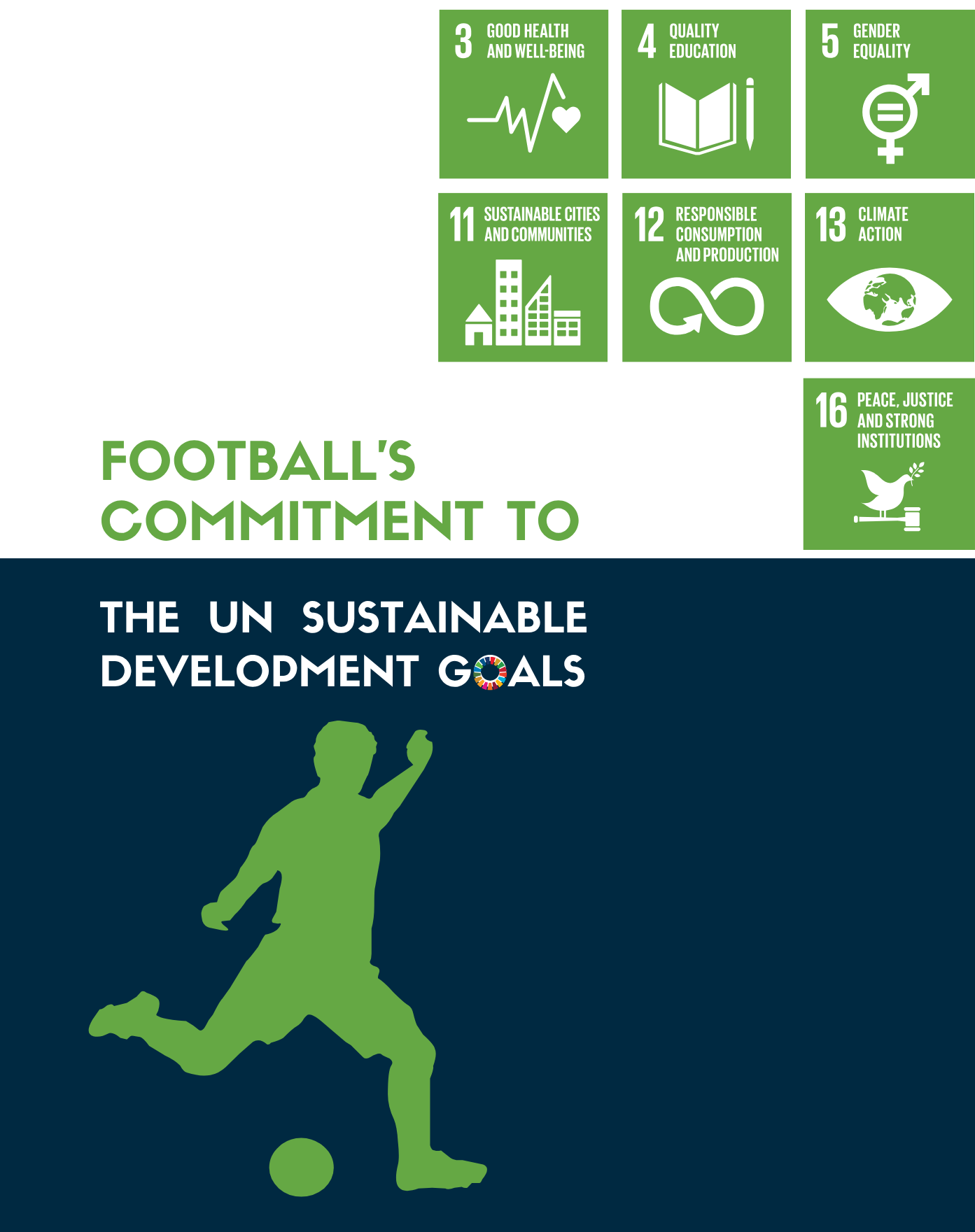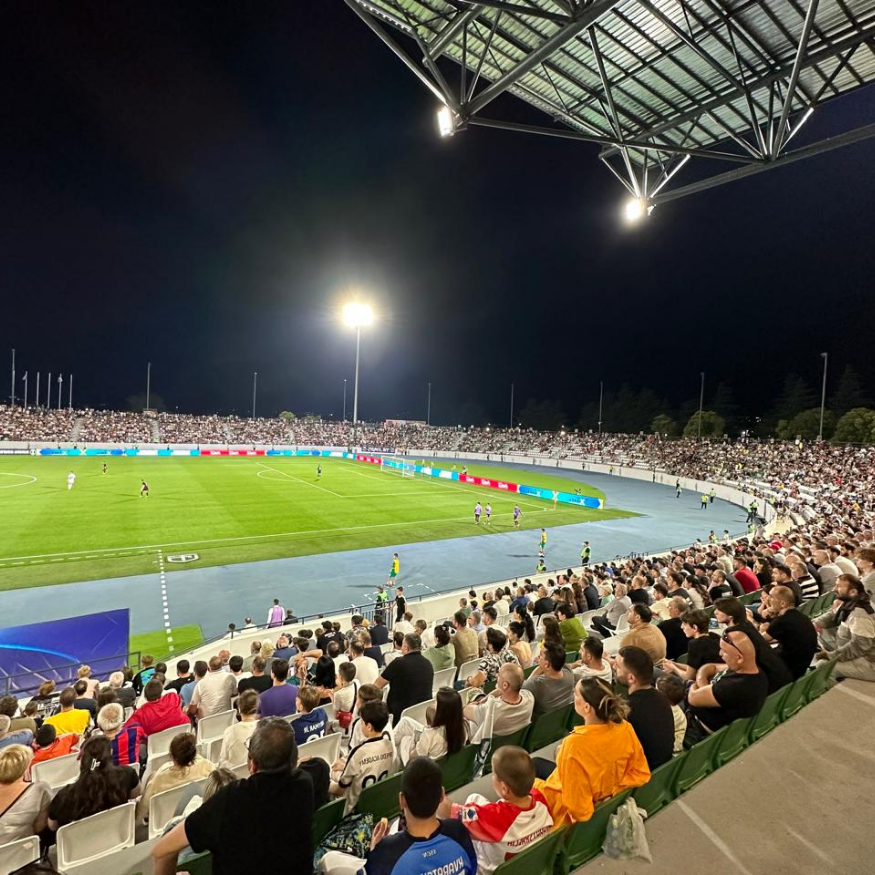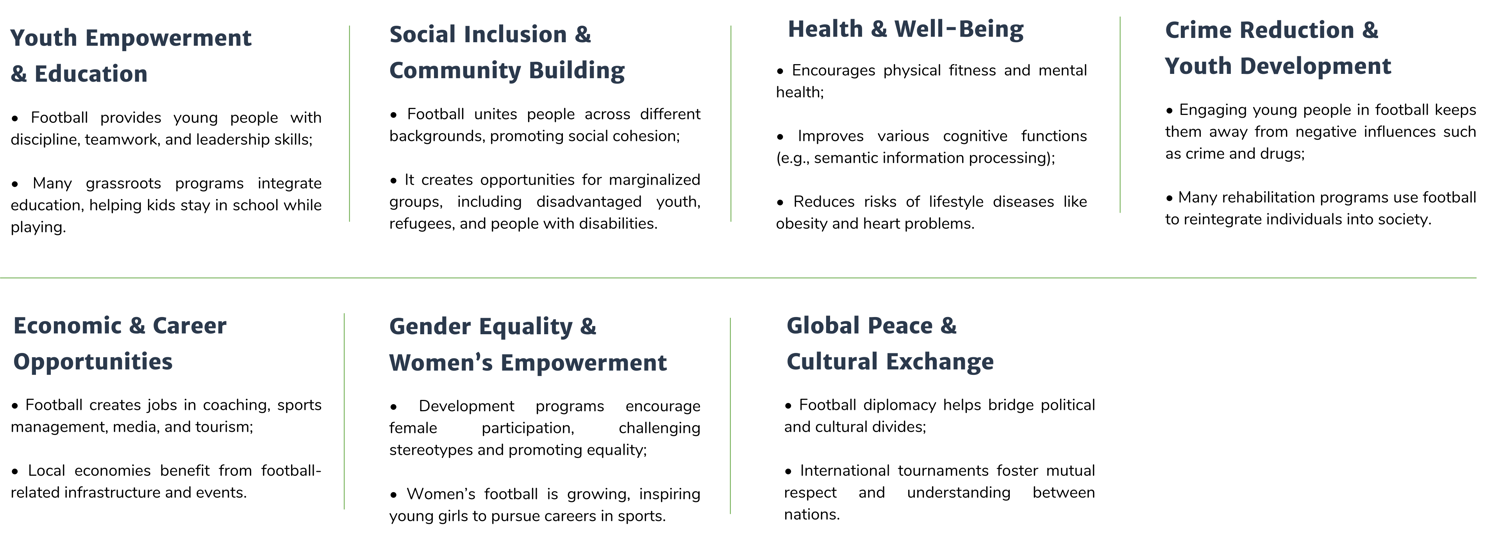Modernizing Society Through Football’s “Soft Power”
Multiplier Effect of Positive Change
Football is more than just a game – it is a tool for societal transformation. Implementation of value driven approaches in football has a multiplier effect for other fields of economy and social life – football inspires positive change.
Football’s commitment to the UN Sustainable Development Goals (SDGs), and the successful implementation of these goals through various football-related activities, clearly showcases how the sport can serve as a tangible force for global progress. By aligning with the SDGs, football organizations, clubs, and players demonstrate that the game is not only about entertainment or competition but also about contributing to a more equitable, inclusive, and sustainable world.
From promoting gender equality (SDG 5) through the growth of women’s football, to supporting quality education (SDG 4) via youth academies and outreach programs, football has become a practical platform to achieve meaningful change. Clubs often run social impact projects addressing poverty alleviation, health and well-being (SDG 3), and climate action (SDG 13), while federations collaborate with NGOs and governments to promote peace, justice, and strong institutions (SDG 16), particularly in post-conflict regions.
Major tournaments increasingly include sustainability plans, such as carbon neutrality goals, waste reduction, and inclusive accessibility, aligning directly with SDG 11 (sustainable cities and communities) and SDG 12 (responsible consumption and production). These initiatives make the SDG agenda visible and relatable to millions of fans and participants worldwide.
By integrating the SDGs into its operations and outreach, football offers a powerful and visible model of how global goals can be advanced in everyday life – making development efforts not only aspirational but accessible and actionable through the world's most popular sport. For example, the growing visibility of women’s football challenges traditional gender roles and inspires young girls worldwide to pursue their dreams. This shift doesn’t just affect the sport but also other areas of society, inspiring change in education, the workforce, and leadership.

Showing Respect

Football bonds people of different nationalities, ethnicities, religions, etc. by creating a shared identity and common purpose. Collaboration to achieve mutual goals unites.
Changing attitude of disrespect towards opponent team players and fans, as well as referees increases tolerance and respect of differences in the society.
Fair play is important not only on the pitch but also outside. It may well lead to reciprocity.
When players and fans show respect to referees and opponents on the field, they also become more likely to reflect those values in real-life situations, whether it’s in personal relationships, work, or in political discourse. This shift in behavior can lead to greater understanding in broader society.
Be Fair and just, or even kind means strength and not weakness. It leads to healthy society.
Social Satisfaction
Understanding football as an event of social satisfaction shifts the focus from pure competition to the broader experience of community, identity, and shared emotion. While competition remains a core rule of the game, where winning and losing are inevitable outcomes, this perspective recognizes that the true value of football lies in its power to bring people together, foster joy, and create a sense of belonging.
In this view, football becomes a social ritual – a collective celebration of passion, loyalty, and emotional connection. Fans gather not only to see their team win but to participate in a cultural moment where stories are shared, identities are expressed, and traditions are passed on. The emotional highs of victory and the lows of defeat are both accepted as part of the experience, teaching patience, resilience, humility, and sportsmanship.
By accepting that every win may be followed by a loss, football encourages a healthy perspective on competition - one that values effort, teamwork, and mutual respect over dominance. It also promotes empathy, as fans and players alike understand that triumph and disappointment are shared human experiences. In this way, football becomes a platform for emotional education and social bonding, not just a scoreboard-driven contest.
Ultimately, seeing football as a space for social satisfaction elevates its role from just a game to a meaningful cultural phenomenon – a source of unity, joy, and learning that reflects the complexity and beauty of human connection.

Influence Positive Change in Society Through Football
Football has a deep impact on society, fostering positive change in multiple ways:

Football as an Economic Driver
Football is a powerful economic driver that goes beyond entertainment. Whether through job creation, infrastructure development, or tourism, its influence extends into nearly every aspect of a country’s economy. Football plays a crucial role in economic development at both regional and national levels by driving job creation, boosting local businesses, and attracting investments.
Enhancing International Reputation
Football is a global industry that influences a country’s economy and international reputation, attracting investors and businesses. Through strong football leagues, successful teams, and major tournaments, countries can enhance their economic growth and exert soft power - the ability to influence others through culture, diplomacy, and global appeal.
